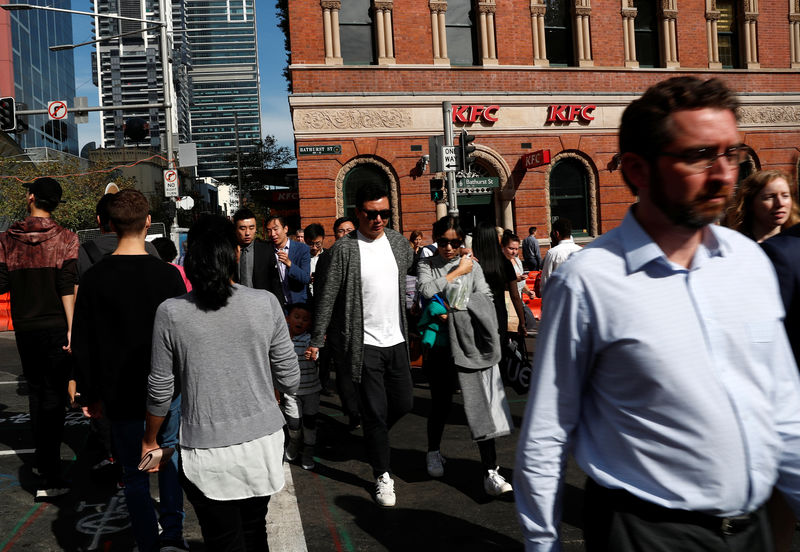Investing.com -- Australian consumer price index inflation grew less than expected in the second quarter, data showed on Wednesday, furthering the case for a pause in the Reserve Bank’s rate hike cycle.
CPI inflation grew 0.8% in the June quarter from the prior quarter, lower than estimates of 1% and slowing from the 1.4% seen in the March quarter, according to data from the Australian Bureau of Statistics (ABS). The CPI reading was the slowest since the September 2021 quarter.
On an annual basis, CPI inflation grew 6% in the June quarter, more than expectations for growth of 5.4%. But the reading was still slower than the 7% jump seen in the March quarter.
The softer CPI readings indicate that the Reserve Bank of Australia’s (RBA) steep increases in interest rates were bearing some fruit, and furthered the case for the bank to pause future rate hikes.
The Australian dollar slid 0.7% after the CPI reading, given that a pause in the RBA’s rate hike cycle dents the appeal of the currency. The central bank had kept rates on hold earlier this month, disappointing some traders holding out for more hikes.
But despite the softer reading for the June quarter, annual inflation still remained well above the RBA’s 2% target range. Rent and dwelling costs remained elevated in the country, amid high mortgage rates, while some supply chain and weather issues saw food prices continue to increase.
The RBA had hiked interest rates by a cumulative 400 basis points over the past year as it moved to tackle runaway inflation. While its measures now appear to be bringing inflation lower, interest rates are likely to stay higher for longer until prices are closer to the bank’s target.
The RBA expects inflation to reach its target only by mid-2025, and that economic growth is likely to cool further in the interim.
A strong labor market is also expected to keep inflation elevated, as several local businesses struggle with a shortage of skilled workers. Data for June showed that employment grew more than expected, pointing to some stubborn trends for inflation.
Strength in the labor market could still attract more rate hikes from the RBA, given that the bank is also targeting some cooling in employment with its rate hikes.
